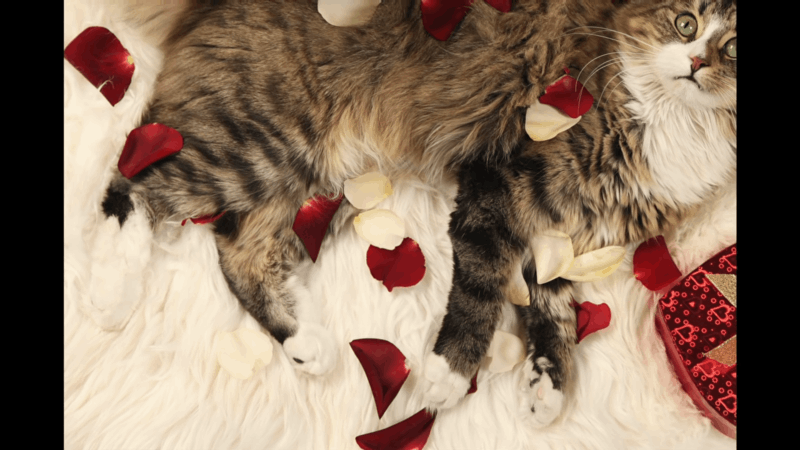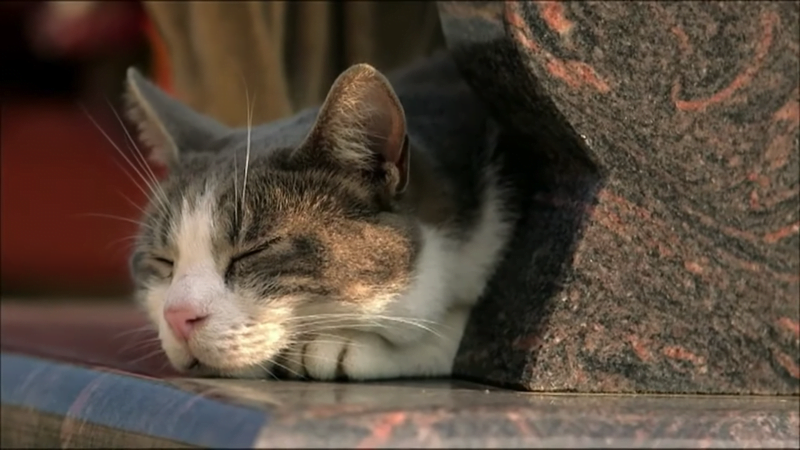No products in the cart.
Colitis symptoms in cats, such as altered bowel habits, diarrhea, and discomfort during defecation, can indicate inflammation of their colonic or large intestine. This condition not only causes discomfort but also disrupts the normal digestive process. In this blog, we will explore colitis symptoms in cats, CBD for colitis, how to treat colitis in cats, the potential benefits of CBD in managing colitis symptoms, precautions to consider when using CBD, and tips to pick the best CBD oil for colitis.
What Are Colitis Symptoms in Cats
Cats’ colonic (large intestine) inflammation is referred to as colitis. It is a condition that can cause discomfort and disrupt the normal digestive process. Numerous symptoms, such as altered bowel habits, diarrhea, and discomfort when defecating, can be brought on by colon inflammation.
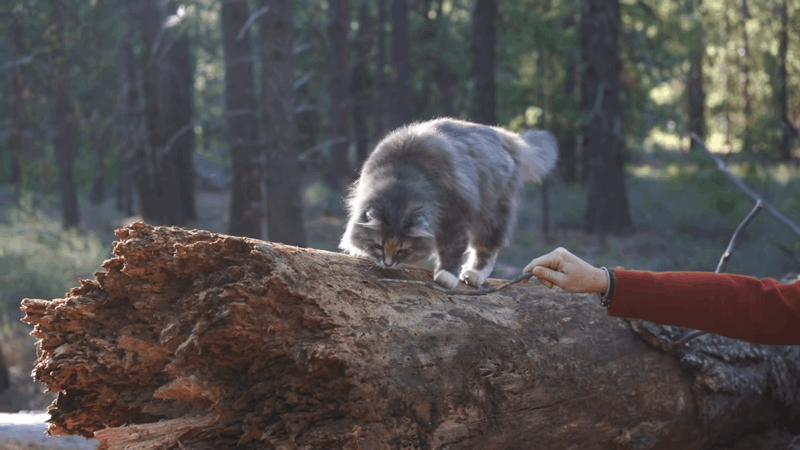
Importance of Early Detection and Treatment
Early detection and treatment of colitis in cats are crucial for several reasons. Firstly, prompt diagnosis allows for appropriate management and intervention to alleviate cats’ discomfort and improve their quality of life. Secondly, identifying and addressing colitis early can help prevent the condition from progressing and causing further complications. Last but not least, prompt treatment may reduce the possibility of long-term negative consequences for the cat’s digestive system and general health.
The Warning Signs of Colitis in Cats
Recognizing the common signs and symptoms of colitis in cats is essential for early detection and prompt intervention. Here are some common signs of colitis in cats:
- Frequent diarrhea: Cats with colitis often experience frequent episodes of loose stools or diarrhea. The stool may vary in consistency and contain mucus or blood.
- Increased frequency of defecation: Cats with colitis may have a heightened urge to defecate, leading to more frequent trips to the litter box.
- Straining and discomfort during bowel movements: Colitis can cause cats to experience pain or discomfort when passing stools, leading to straining or vocalization during defecation.
- Presence of blood or mucus in the stool: Colon inflammation may be the reason why there is blood or mucus in the cat’s feces. This can be an alarming sign that warrants immediate veterinary attention.
- Decreased appetite and weight loss: Cats with colitis may exhibit a decreased appetite and experience weight loss due to the discomfort and inflammation in their digestive tract.
The Potential Benefits of CBD for Colitis
CBD is a compound that comes from the cannabis plant. It has drawn a lot of interest for its possible medicinal properties, especially for its capacity to lower inflammation. When it comes to colitis, CBD may hold promise in alleviating symptoms and providing relief. It engages the body’s endocannabinoid system, which aids in controlling immunological reactions and inflammation. This means that CBD might be able to help manage the inflammation and discomfort associated with colitis.

The Use of CBD in Feline Colitis
While there isn’t an abundance of specific research on using CBD for feline colitis, there are studies on CBD in other animals and anecdotal evidence suggesting its potential benefits. Many pet owners have reported positive outcomes, mentioning that CBD has helped reduce inflammation and regulate the immune response, leading to a relief in colitis symptoms for their cats. Moreover, CBD has been known to have a calming effect, which can be particularly helpful for cats dealing with colitis triggered by stress.
Precautions When Using CBD for Cats
When considering CBD for your cat with colitis, it’s important to take some precautions to ensure their safety and well-being. Here are a few things to keep in mind:
- Consult a veterinarian: Consult with your veterinarian first before giving your cat any CBD products. They can provide valuable advice based on your cat’s specific health condition and any potential interactions with other medications they may be taking.
- Choose high-quality CBD products: Select CBD products for pets of the highest caliber; seek out pet-specific formulations that have undergone independent testing. This guarantees that the goods you receive are trustworthy, secure, and free of dangerous pollutants.
- Follow dosage guidelines: Start with a low dose of CBD and gradually increase it if needed. It’s essential to adhere to the dosage recommendations made by the product’s manufacturer or your veterinarian. Finding the ideal dosage for your feline buddy may take some trial and error because every cat is unique.
- Monitor for any adverse effects: While CBD is typically tolerated by cats without any bad side effects, it’s still vital to watch out for any unpleasant consequences. Watch for signs of excessive sedation, gastrointestinal upset, or changes in behavior. If you notice anything concerning, discontinue the use of CBD and consult with your veterinarian.
- Remember that each cat is unique: One cat’s solution might not be the same for another. Pay attention to how your cat responds to CBD, and be open to adjusting the dosage or exploring other options if needed.
How to Treat Colitis in Cats
Colitis in cats is often treated using a multifaceted strategy that targets the underlying cause, lessens inflammation, and controls symptoms. Here are some common treatment approaches:
- Veterinary consultation: Consultation with a veterinarian is essential if you have any suspicions that your cat has colitis. To ascertain the underlying cause and severity of the colitis, they will conduct a thorough examination that may include diagnostic tests.
- Dietary modifications: Your veterinarian may recommend a special diet for your cat to help manage colitis. This may involve feeding a hypoallergenic or highly digestible diet that is gentle on the gastrointestinal system. In some cases, a prescription diet formulated for cats with digestive issues may be recommended.
- Medications: Depending on the underlying cause and severity of colitis, your veterinarian may recommend drugs to address any potential bacterial or parasitic infections as well as reduce inflammation and control diarrhea.
- Probiotics and supplements: Probiotics can improve digestive health and help rebalance the good bacteria in the gut. Your veterinarian may recommend specific probiotics or supplements that can help improve the condition of the colon.
- Stress reduction: Stress can worsen colitis symptoms in cats. Creating a calm and stress-free environment for your cat is essential. Provide hiding spots, vertical spaces, and interactive toys to help reduce stress and promote mental well-being.
- Regular monitoring and follow-up: Colitis treatment may require ongoing monitoring and adjustments. To monitor your cats’ progress, adjust the treatment plan as needed, and safeguard their general health, it’s crucial to schedule routine follow-up appointments with your doctor.
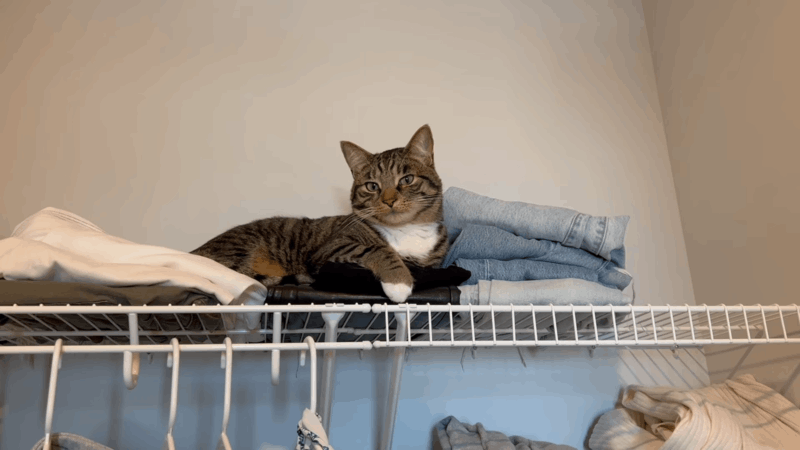
Tips to Pick the Best CBD Oil for Colitis in Cats
Determining the best CBD oil for colitis in cats can be challenging, as individual responses may vary. However, here are some factors to consider when choosing CBD oil:
- Quality and sourcing: Look for CBD oils that are made from premium, organically farmed hemp plants to ensure product quality and origin. The product should be free from pesticides, contaminants, and excessive THC levels.
- Third-party testing: Choose CBD oils that have undergone third-party testing to verify their potency and purity. This ensures that the product is accurately labeled and free from harmful substances.
- CBD concentration and dosage: Consider the concentration of CBD in the oil and determine the appropriate dosage for your cat based on their weight and the severity of their colitis symptoms. Under your veterinarian’s direction, begin with a low dose and then gradually increase it as necessary.
- Formulation: Some CBD oils are specifically formulated for pets, which may make them easier to administer and more suitable for cats. Look for products that are designed for feline use.
- Veterinary guidance: It’s crucial to involve your veterinarian in the decision-making process. They can provide recommendations based on your cat’s specific needs and ensure that CBD is a safe and appropriate option for their colitis treatment.
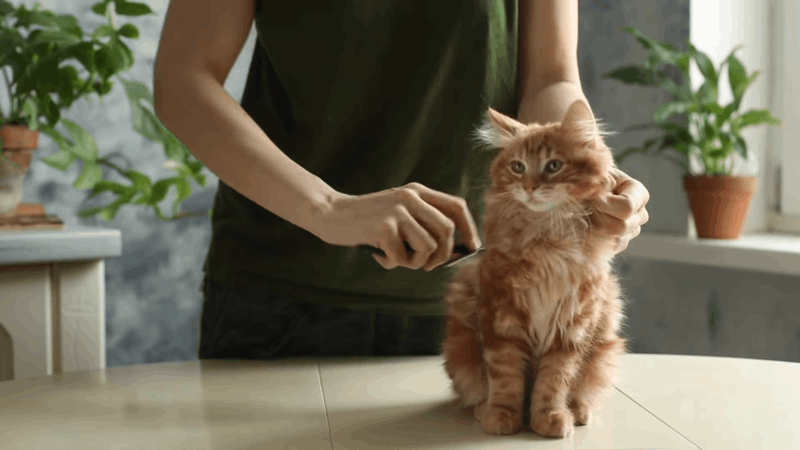
Conclusion
Colitis symptoms in cats can vary, and it’s crucial to be proactive in identifying and addressing them. Early detection and treatment are crucial for reducing pain, preventing complications, and improving general health. To make sure they’re secure and suitable for your cat’s particular needs, a vet must be consulted before administering any new medications, including CBD. Your pet can better manage the symptoms of colitis and live a higher quality of life if you work closely with your veterinarian and adhere to a thorough treatment plan.
I am Nelson Cooper, I pursue my passion for writing and my belief is that cats love humans. I enjoy traveling and have a deep appreciation for the beauty of nature, as well as a soft spot for animals, particularly cats.

